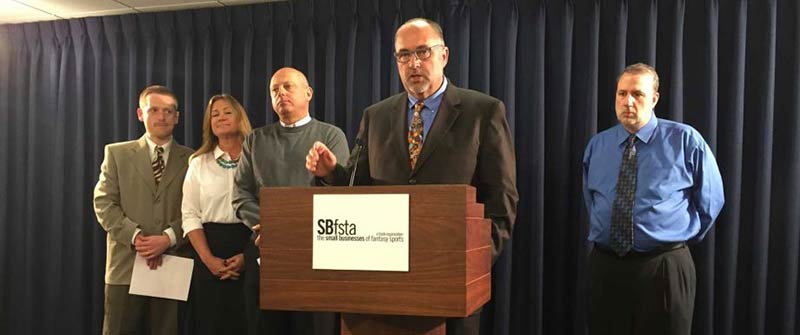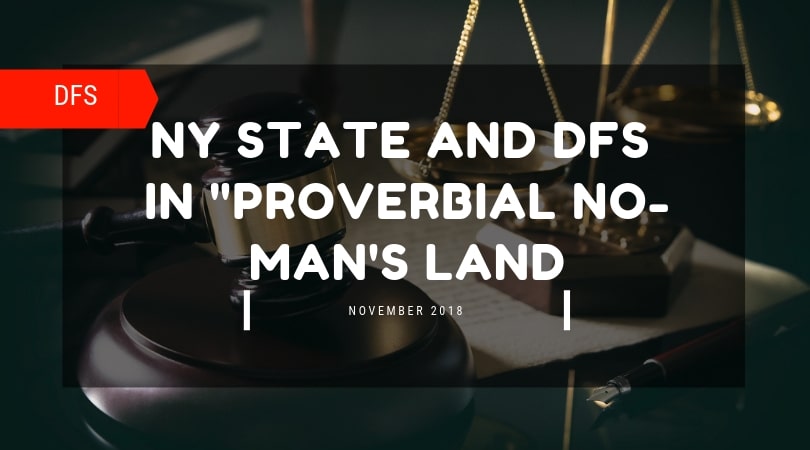The Small Business Fantasy Sports Trade Association speaks out

Smaller fantasy sports operators have banded together to raise concerns about the detrimental legislative changes that the market leaders, FanDuel and Draftkings have been coaxing across the nation.
An important association
The Small Business Fantasy Sports Trade Association (SBFSTA) was established to protect the interests of these smaller operators who feel that the Fantasy Sports Trade Association (FSTA) expected to represent the interest of all operators in the industry have been displaying a bias towards the two bigger operators. In recent years the FTSA seems to have dedicated most of its energy and influence in soliciting legal movements that only serve the interests of these bigger companies.
Unfair regulations
The SBFSTA’s efforts will primarily be focused on bringing about amendments to the proposed regulations in New York. Senate Bill S6793 – An act to amend the racing, pari-mutuel wagering and breeding law and the financial services law, in relation to interactive fantasy sports, if passaged would impose rigorous controls on the sector, including a $500,000 licensing fee and a tax of 15 per cent on total revenues.
The smaller DFS operators are convinced that such astronomical fees will force them out of business in the state. The extraordinary operating charges would effectively grant a duopoly to FanDuel and DraftKings; both of the firms are in support of the proposed legislation in New York and would be able to easily afford the charges if the bill passes.
SBFSTA said, “Policy makers and the public have been led to believe that DraftKings and FanDuel speak for all fantasy sports operators. They do not!”
“We will take this fight across the country on behalf of all of the fans,” said Alex Kaganovsky, the spokesman for SBFSTA. “We will not stand by while the two major players in the industry, which have direct financial ties with three of the major professional sports leagues, are permitted their own duopoly in New York.”
John Bonacic, State Senator of the Racing and Gaming Committee in New York introduced the Senate Bill last month to regulate fantasy sports and establish consumer protection for the players. However, Kaganovsky dismissed Bonacic’s proposal as “little more than a concealed effort by DraftKings and FanDuel to eliminate competition by driving out the hundreds of small operators who cannot possibly pay the high fees and taxes called for in the legislation.”
The small businesses are essential!
He added, “We are very grateful to Senator John Bonacic and Assemblyman Gary Pretlow for hearing our voices during our trip to Albany and while we are hopeful that changes will be made to keep us viable, we remain concerned that the DraftKings and FanDuel legislation, as written, would be devastating to small fantasy sports businesses across New York.”
Kaganovsky also mentioned that although FanDuel and DraftKings generate the majority of the profits, there is much more to the sector; small, independent, family-owned businesses that are typically operate from a single location and generate small volumes of earnings represent 95 per cent of the fantasy sports industry. “Small businesses have been the lifeblood of this industry for decades,” he added.
Matt Schauf, an analyst for SBFSTA member DraftSharks, said that “The ripple effect of the legislation would be enormous. There are lots of small vendors that rely on each other. If one business goes under, others will start falling like dominoes,” he said. “This is tantamount to moving the goal posts in the middle of the game, only the fans are the ones who end up losing. There is absolutely no way that any small game operator can pay a $500,000 fee.”
Virginia was the first state to officially legalise DFS in their state and Indiana was quick to follow with their own set of legal regulations; the SBFSTA pointed out that the high annual fees of $50,000 that operators now have to pay in Virginia and Indiana are enough to allow DraftKings and FanDuel to remain in business, while making it impossible for the smaller operators to do so. This again implicates that the FSTA for only advocating the interests of the two DFS industry leaders.
“DraftKings and FanDuel do not speak for everyone,” Schauf said. “They are steamrolling our businesses and drowning out our voices, and it needs to stop.”
Fantasy Sports have seen a towering gain in popularity and more than fair their share of media attention. While the state governments all over the country have been quick to draft legislations to regulate the industry, it seems like they may have overlooked the smaller players in the business.










